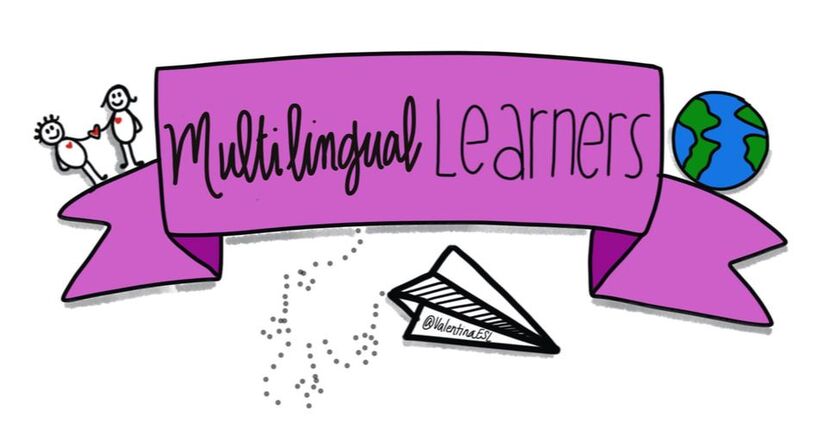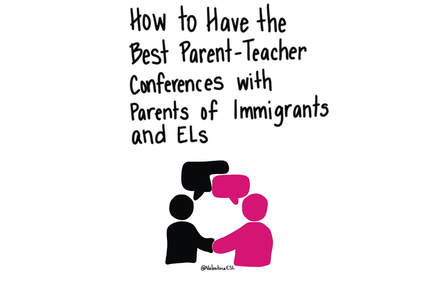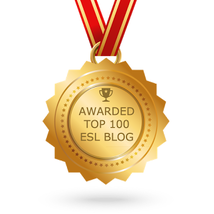|
I know...it's about to be summer. You're probably thinking why are we talking about parent-teacher conferences? Well, this is actually a great time to set a plan that will make the most of your time with parents of ELs. Building a team to support your students is like building a foundation. It's either going to be sturdy and strong or it's going to be weak and easily broken. Which do you prefer? If you're like me, you want the strong foundation. Here are my tried and true suggestions for amping up your parent-teacher conferences. Welcome
Creating a welcoming environment is number one. If the classroom, school, and teachers give the "everyone is welcome" vibe, then parents will feel more inclined to come. On the other hand, if the vibe says "stay away" parents will get the message. Creating a welcoming environment cane take many forms. Our non-verbals send messages too. When we greet parents we have to remember that our body language is either inviting or it's not. The front office, in this case, is going to be a big determiner. When parents walk in the front door of the building, how are they greeted? With a smile? A warm friendly face? Is there a helpful hand? Positive note As teachers, we are very busy. We have attendance, grades, curriculum to cover. But building a positive relationship with parents and students will go a long way. Stopping to write a kind note, sending an email, or a text message to highlight something great a student did makes a huge impact on the way that parents and students perceive the school. Positive notes home are especially important before parents are met with a struggle at school. If our first contact with them is positive, then if ever there is something less positive, they will be more apt to be understanding and supportive. Don't assume When sending home notes or meeting with parents, don't assume the language they prefer. ASK. Simply ask, "Which language do you prefer we speak?" or "Which language do you prefer papers be sent home in?" We could be way off base by assuming a parent's preference. Send questions ahead of time Prior to a parent-teacher conference, send home any questions you might have ahead of time. This helps alleviate parents' anxiety and allows them to prepare. This also allows them to reach out to friends for language support or advice prior to meeting with you. Translators If a translator is necessary find out ahead of time. Secure a qualified adult to translate. Avoid using the child or another student to translate. Though having the student at the conference is not a bad idea, using the student as a translator has some negative affects. The vocabulary and language used during the conference may not be appropriate for the child to translate. This puts stress on the student. Ed Lingo During the conference, avoid using educational lingo or acronyms. Speak clearly and explicitly. Ask if parents need clarification or have any questions. Actionable steps Provide parents with a few actionable steps they can easily implement at home to help support their child. Leave parents with some type of visual or written note regarding their next steps. This will be a way for parents to feel they can contribute to their child's education. Home visits If your district allows home visits, do it! Home visits are the most powerful way to connect with families. When you visit a family's home, you are able to see into a child's life in a way that you can't from the walls of your classroom. This opportunity sheds light on the home routines, the family dynamics, and much more. A home visit also tells parents that you care about the student and their family. Their shoes Immigrant and EL families have different needs. Each of them is unique. We all are. But immigrant families especially that are not only learning a new language but also learning a new culture and country have a heavy load. Try to understand where they are coming from. Think about how you might feel if you moved your family to a new country for whatever reason. I'm pretty certain that you would not want your children to forget their native language and culture, right? Keep that in mind as you advise and support the EL and immigrant families that you have the honor to serve. Feel free to make copies, share material or publish this information for noncommercial use as long as you give credit to Valentina Gonzalez and other authors. For commercial use, please contact Valentina Gonzalez. Comments are closed.
|
Categories
All
|


 RSS Feed
RSS Feed
